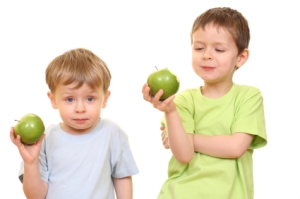In the OT, stewardship is mainly embodied in the Mosaic Law, where the tithe, or first-fruits, are set apart from the yearly increase of one’s possessions, be it of the flock, or crops in the field: “Thus all the tithe of the land, of the seed of the land or of the fruit of the tree, is the LORD’S; it is holy to the LORD.” (Lev 27:30) See also Deuteronomy 12.

Tithe means 10% in Hebrew. The idea is for each person to dedicate the first and best part to God. When your crops are coming out of the ground, it is scary to give the first fruits, because you don’t know how much crop will follow. When you have cattle, it is scary to give the first born because you do not know how many animals will come. God wants us to live a life of faith and trust in Him, so that He can then reward us with blessing when we show Him that faith. It takes no faith to wait until you have had a bountiful crop or many livestock born and then give some of what you have.
Some people think that this is Old Testament Law and that we have been redeemed from this and are no longer under this requirement. But Jesus directly confronted this way of thinking…
“But woe to you Pharisees! For you pay tithe of mint and rue and every kind of garden herb, and yet disregard justice and the love of God; but these are the things you should have done without neglecting the others.” (Luke 11:42)
He did say that your heart condition and the way that you treat others is more important, but He very specifically says you must fulfill God’s tithe requirements.
And when you look at the blessings God gives you for doing so, why wouldn’t you want to tithe?
Do you tithe? If not – why? Let’s talk about it. And invite someone to join the conversation by sharing this post.
